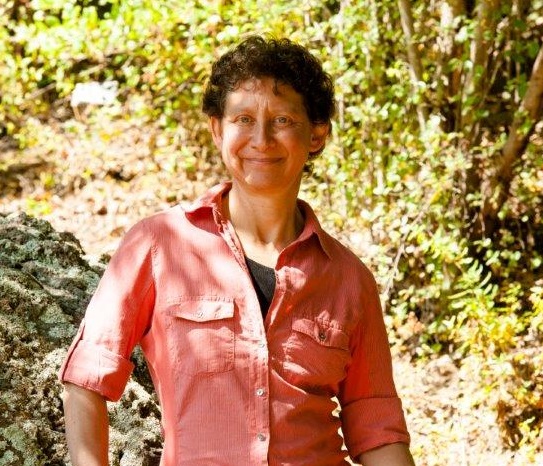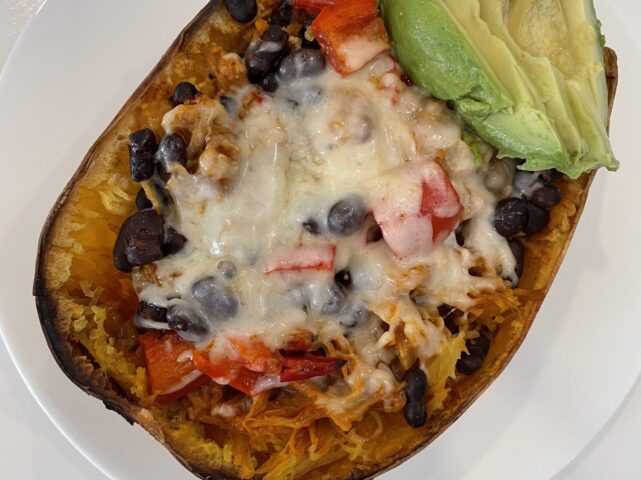Image of Linda Bacon courtesy of her site
By Laura Cipullo, RD, CDE, CEDRD and the Whole Nutrition Services Team
7 Names You Should Know in the Health and Wellness Field
Today, I want to introduce you to an extraordinary group of women who, through the years, have inspired and influenced me with their revolutionary approaches to health and well-being. If you are looking for a new way to approach how you eat and view your body, I can think of no better way to start than by becoming familiar with their books and philosophies. Many of my contemporaries and I have developed our own approaches rooted in these women’s methods.
Elyse Resch, MS, RDN, FADA, Nutrition Therapist and Evelyn Tribole, MS, RD
Resch and Tribole are the co-authors of Intuitive Eating, a book that tells readers to trust their own inner voices when it comes to deciding what to eat. As Resch explains on her website, intuitive eating “is the wisdom with which you were born but from which you have become distracted.” Intuitive eating discourages worrying about whether foods are “good” or “bad,” and instead encourages a focus on eating when you feel hungry and stopping when you are full. Resch came to write the book with Trebole after she discovered how little traditional diets were helping her clientele:
“I realized very quickly that deprivation can only lead to over-glorifying what is not allowed, and that external control usually leads to rebellion. [Abraham] Maslow has said that we are driven by our unmet needs. If we’re told we can’t have chocolate, chocolate is all we will think and dream about. And just watch what happens in countries that are ruled by dictators–coups and rebellions become rampant! As I began to read about the eating habits of children who are offered a wide variety of food, both nutritious foods and play foods, I discovered that they seemed to develop a completely balanced approach to eating.”
Though Intuitive Eating was published in 1995, it is regularly updated with new information, such as how to get children and teens to become intuitive eaters and what science has to say about the concept of intuitive eating. As a result of their work, Intuitive Eating has caught on in a major way with international support groups devoted to the issue and research has been done that supports the Intuitive Eating theory, which you can see on Tribole’s site.
In addition to being an author and award-winning RD, Tribole has also written many other books on food, including The Ultimate Omega-3 Diet, and has resources on her site pertaining to celiac disease and eating disorders as well.
Ellyn Satter, MS, RDN, MSSW
Ellyn Satter is an author of several books about pediatric nutrition and feeding, including Secrets of Feeding a Healthy Family and How to Get Your Kid to Eat But Not Too Much. Her three-day intensive workshop Treating the Dieting Casualty positively affected my personal nutrition and my non-diet approach with clients. Like Resch and Tribole, Satter believes in the concept of intuitive eating and also something that she refers to as “competent eating.” On her site, you can find a simple yet amazing series of guidelines called The Satter Eating Competence Model. To find out whether you are a competent eater, Satter asks you to consider the following:
“Do you feel good about food and about eating—and feel good about feeling good?
Do you like a variety of food and enjoy learning to like new food?
Do you trust yourself to eat enough for you?
Do you take time to eat? To have regular meals (and snacks) and pay attention when you eat?”
The science behind her model is encouraging, with participants enjoying a nutritious, balanced diet, having lower BMIs, better self-esteem, sleeping more soundly, and becoming better feeders to their children. Satter believes eating should not be rushed, should be enjoyable, and should not include deprivation. Satter is all about self-care through food and not seeing it as the enemy.
The Satter Feeding Dynamics Model is devised for children, encouraging parents to raise mindful eaters. Children, she believes, will eat as much food as their bodies need, will learn to eat what their parents are eating and should behave well during meals.
Linda Bacon, PhD
Nutritionist and teacher Linda Bacon is a leader in the Health at Every Size movement. She literally wrote the book on it — Health at Every Size: The Surprising Truth About Your Weight, called “the Bible of the alternative health movement” by Prevention Magazine. She busts the commonly-held belief that thin equals healthy and fat equals unhealthy, and the myth that anybody can lose weight as long they have enough motivation. As you might guess, she too does not believe in deprivation, telling readers to eat what they want when they want, and to move, but not in a punishing way, but in a way that reconnects your body and spirit with joy. She believes that achieving a healthy weight should be effortless. Read A Messsage for People Considering Their Next Diet for a better understanding of her philosophy.
Francie White, MS, RD and Geneen Roth
When it comes to the field of emotional eating, Francie White and Geneen Roth are pioneers. White is the co-founder at the Central Coast Treatment Center for Eating, Exercise, & Body Image Disorders, and Roth, who was featured on Oprah, is the bestselling author of Women, Food and God and Breaking Free from Emotional Eating. Together, White and Roth taught a popular workshop also called Breaking Free from Emotional Eating. White seeks to help people regain trust in their body and works on a variety of issues relating to body image, nutrition and exercise. From the early ’80s, she saw harm in a weight loss industry that resulted in the “unexpected casualty” of disordered eating, as she explains on her site. She worked with professionals and did her own research to discover how to effectively treat overeating, restrictive eating and bulimia.
Roth, meanwhile, subscribes to the idea that food is not just food, but a mirror image of how we truly feel about ourselves. According to Roth, our beliefs about love, fear, anger, and even God are reflected in the way we feel about food. Kindness, she believes, is highly effective in changing the way we approach eating, and meditation is a key tool in her practice. One of my favorite books by her is When You Eat at the Refrigerator, Pull Up a Chair.
Susan Albers, Psy.D
Albers is a mindfulness and emotional eating guru who runs workshops on the topics throughout the US. She is also a clinical psychologist at the renowned Cleveland Clinic, and author of many books including Mindful Eating 101, Eat, Drink & Be Mindful, and 50 Ways to Soothe Yourself Without Food — which helps folks replace emotionally-based eating with other, healthier ideas. Her beliefs are simple but powerful: “no judgments, no fad dieting, eating the foods you love mindfully, living in the moment, savoring life, and compassion.” Feel free to take the 2016 Mindful Eating Pledge at her website.
These women deserve thanks for collectively helping to revolutionize the way we look at diets, our bodies and food. I encourage you to look at their sites, as they are packed with many free resources you can use to achieve a more mindful lifestyle.








